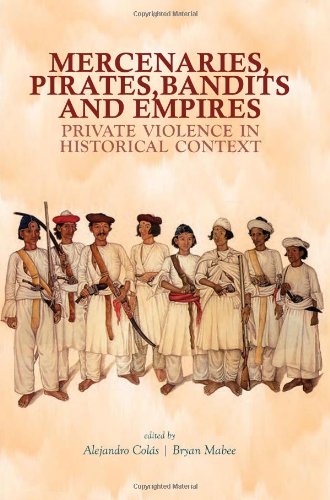

Most ebook files are in PDF format, so you can easily read them using various software such as Foxit Reader or directly on the Google Chrome browser.
Some ebook files are released by publishers in other formats such as .awz, .mobi, .epub, .fb2, etc. You may need to install specific software to read these formats on mobile/PC, such as Calibre.
Please read the tutorial at this link. https://ebooknice.com/page/post?id=faq
We offer FREE conversion to the popular formats you request; however, this may take some time. Therefore, right after payment, please email us, and we will try to provide the service as quickly as possible.
For some exceptional file formats or broken links (if any), please refrain from opening any disputes. Instead, email us first, and we will try to assist within a maximum of 6 hours.
EbookNice Team

Status:
Available4.4
28 reviewsIncidents of private violence were once dismissed as relics of a less evolved world, yet the activities of terrorists, insurgents, private military companies, and pirates have returned the phenomenon to global prominence. Academics now scrutinize "nonstate" or private violence with more sensitivity, hoping to get a better handle on the implications for international security.
Interpreting these acts in their historical contexts, this collection traces the development of private violence across history, comparatively analyzing its growth among different geographies. Nine comprehensive chapters recount the making of pirates, privateers, mercenaries, warlords, bandits, and smugglers—groups that sustain themselves through violence committed outside and on the borders of state authority. Contributors draw on political anthropology and economics, historical sociology, and international relations, underscoring the way in which private violence threatens existing social orders while empowering established political authorities. They denaturalize the idea that national states are the true, dominant actors in the global sphere, examining the contradictory yet complex interactions among nonstate violence, authority, and political mobilization. Their work ultimately shows that private violence has existed throughout history, though it has transformed our world very specifically.